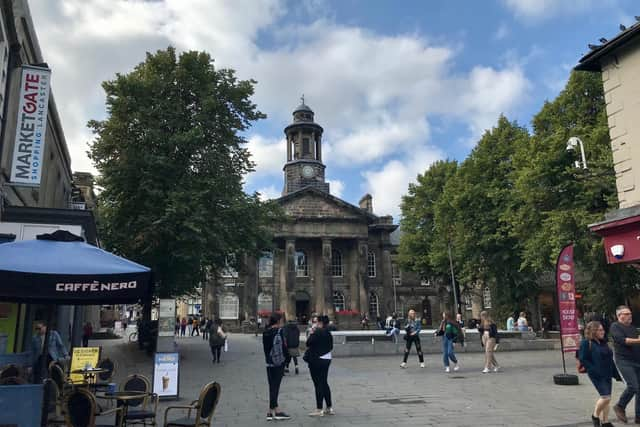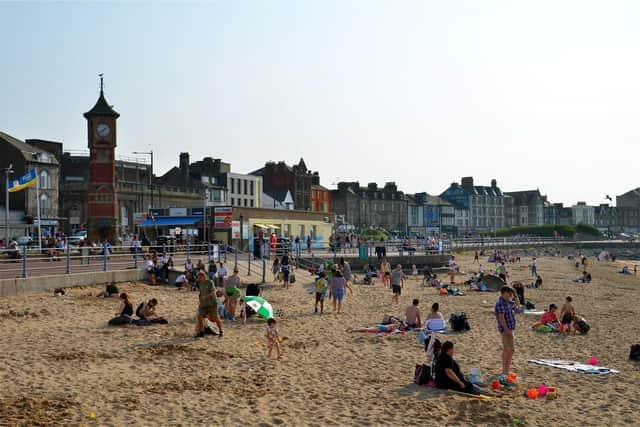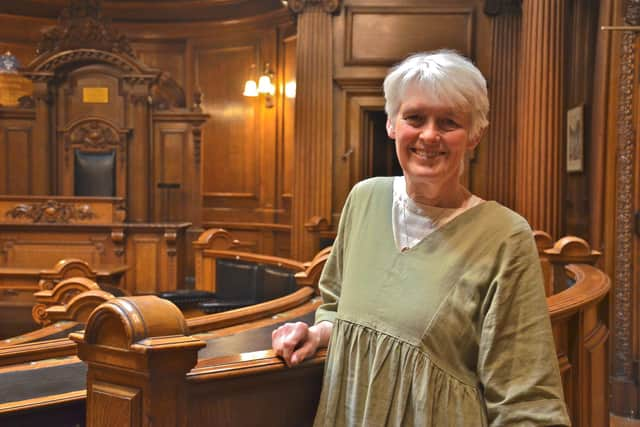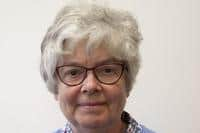‘New layer of austerity’ expected as Lancaster City Council prepares new budget
and live on Freeview channel 276
The city council’s cabinet has published its proposed budget, which needs approval from the full council on February 22.
Leading councillors say the aim is reflect public priorities in what they describe as a new layer of government austerity.
Advertisement
Hide AdAdvertisement
Hide AdAs part of the budget-setting process, residents’ and businesses’ views were gathered on where savings might be made.


The proposals also aim to reflect the council’s own priorities.
Councillors say difficult decisions about cuts and changes are needed.
Various council workers’ jobs, services and buildings could be affected.
Advertisement
Hide AdAdvertisement
Hide AdCOUNCIL BUDGETS AND COUNCIL TAX


The council plans to use some money from its reserves along with a range of measures to produce a balanced revenue budget.
However, action will be needed over the next three years to respond to forecast budget deficits of £1.7m, £4m and £5.6m.
This year, the city council is looking at raising its element of council tax by 2.99 per cent.
When all elements are added together, the typical combined yearly increase will be £89.


This would mean a Band D property paying £249 per year.
Advertisement
Hide AdAdvertisement
Hide AdAround £33m is earmarked for projects spanning the next few years.
Of this, £17m is for electric vehicles, property de-carbonisation schemes, Salt Ayre Leisure Centre and Mellishaw Park project, and £7m is earmarked for Morecambe regeneration, Lancaster Heritage Action Zone, a Gateway solar energy project and building works.
In addition, £6m is earmarked for Canal Quarter housing, Burrow Beck solar energy installation and a depot at White Lund.


VISITOR CENTRES, MORECAMBE PLATFORM AND MUSEUMS
Visitor information centres in Morecambe and Lancaster, which cost £250,000 a year, face closure.
Advertisement
Hide AdAdvertisement
Hide AdCoun Whitehead said: ” We will provide tourist information in other ways, look at putting tourist information in Morecambe and Lancaster town halls, and developing digital methods and staff training. We will also look at providing visitor information in other leisure and arts venues or organisations, such as Morecambe Town Council and the Eden Project.
Museums in the district will have revised opening hours and new ways of operating, which could save £300,000.
The council is also looking for talks with other organisations about Morecambe’s Platform venue. Its current programme of activities will run until spring 2024, Coun Whitehead said.
Coun Jackson said councils were effectively facing a new layer of government-enforced austerity after previous years of austerity.
Advertisement
Hide AdAdvertisement
Hide AdAreas of council activities which are called discretionary, or not legally-required by the government, such as museums, visitor centres and events, were earmarked for the bulk of efficiencies, cuts or changes.
Despite the challenges there were also investment plans and other projects looking to the future, she added.
She said: “Change is not always negative. We are looking to see how we can do things differently. Visitor information centres are not necessarily the only way to provide tourist information in the digital age.
"People need some face-to-face contact but there are other ways to do things.
Advertisement
Hide AdAdvertisement
Hide Ad“Overall, I’m trying to be upbeat about the changes we are proposing. Some councils have sold their parks. I cannot think of something more appalling than that. Our ideas here are about doing things differently.
“We know very well that district councils are key. They know their districts best. Hopefully future governments will recognised that and circumstances will change.”
CABINET VIEWS
Coun Anne Whitehead, cabinet member for finance, and council leader Coun Caroline Jackson said changes were inevitable because of rising costs and reduced government funding.
They said new ways of working would be found and some decisions might be reversible in future.
Advertisement
Hide AdAdvertisement
Hide AdCoun Whitehead said: “Spiralling inflation in recent times and years of reduced Westminster government funding to councils had made this year’s proposed budget harder than ever.
“Councils have to achieve balanced budgets where spending and income are matched. The various political parties on the cabinet have worked hard to agree a balanced budget, balanced by the use of some of our reserves.
“Over the past 10 years, government funding for core, day-to-day council services has fallen by 40 per cent. The trend has been a move away from government support to greater reliance on business rates and council tax for income.
“We have to take action in dealing with the deficit that we face. If we didn’t act then the deficit would go up year by year, we would get warnings from our own financial officers and the government could take over. We don’t want that.
Advertisement
Hide AdAdvertisement
Hide Ad“We want to make our own decisions within the circumstances we face. Inevitably, we need to reduce or stop some services, and change other services. We will make the decisions based on the council’s core plan and priorities around a sustainable district, economic prosperity and inclusion, a happy, healthy district and working in partnership with others.
“We have taken all possible steps to minimise using our cash reserves. We’ll also be taking a long-term review at redesigning the council.
“We want to protect and enhance frontline, neighbourhood services. We want to work with others. We want to maintain direct delivery of our own services, not outsource them. We want to ensure services reach those most in need.”
Council buildings and assets, such as Lancaster and Morecambe town halls and cafe-hospitality arrangements will be reviewed.
Advertisement
Hide AdAdvertisement
Hide AdFees and charges, from pre-planning application advice to pest control, will be reviewed. Overall, the council’s fees and charges bring in £18m a year. Car park fees will remain frozen but charges will be introduced for electric vehicle points.
Public feedback suggested residents would prefer budget savings to made in planning and building control, and environmental health departments.
Budgets for rubbish collections and street cleaning needed the greatest protection, while funding for parks, play areas and green space funding also needed protecting.